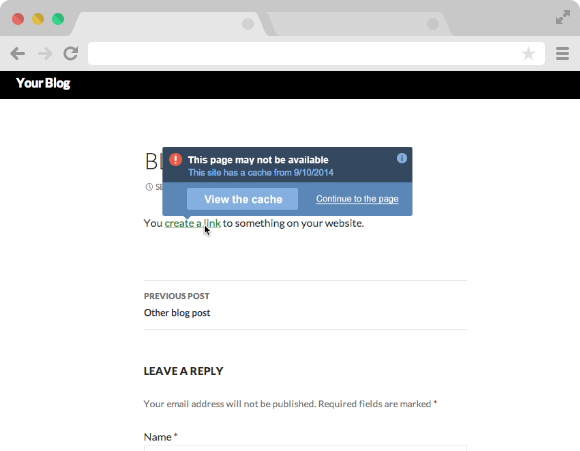Ever seen a news story from a few years back — or maybe even just a few weeks back — and gotten frustrated when an old link doesn’t work any more? It’s a problem for anyone who publishes on the web, but particularly for news organizations — both because that network of links is an important part of the historical record and because so many news site redesigns and CMS changes have killed a disproportionate share of the web’s URLs.
Amber is a tool from our friends at the Berkman Center here at Harvard that tries to address it:
Whether links fail because of DDoS attacks, censorship, or just plain old link rot, dead links are a problem for Internetusers everywhere.
This isn’t a new problem. Some centralized initiatives, such as the Internet Archive and Perma.cc, are attempting to snapshot and preserve the Internet.
But more and more, just a handful of centralized entities host information online. Online centralization creates “choke points” that can restrict access to web content.
The more routes we provide to information, the moreall people can freely share that information, even in the face of filtering or blockages.
Amber adds to these routes.

Amber automatically makes a copy of every page linked on a website and stores it on that site’s server — think of Google’s cache. If any of those links go dead, the mirrored version can be offered to visitors. A beta version of the plugin is available for WordPress and Drupal, and they’re looking for publishers interested in testing it out to see how it can be improved before a final 1.0 release. Email amber@cyber.law.harvard.edu if you’re interested.
Leave a comment